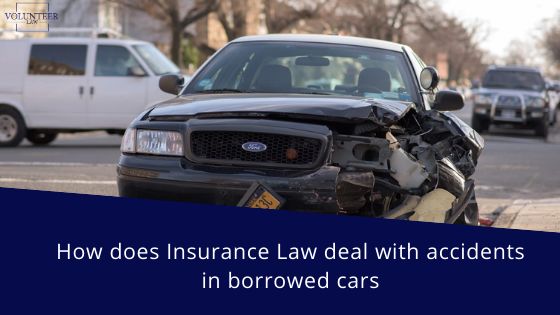If one of my mates drives my car and is involved in an accident, how does the insurance work? This question is a fairly common one with a not-so-popular answer.
Before that, let us tackle the popular answer. “Bro, he was in the accident. His insurance policy will cover everything. You just focus on getting your car repaired.” is the answer of any average Joe.
Well, Mr. Average Joe is wrong by a mile.
Car Insurance companies and insurance defense attorneys follow a simple rule — Car insurance follows the driver; not the driver.
What does this mean?
This means you, the owner of the car, are held liable most of the time. As long as you have an insurance policy of a substantial cover in place, it is you who will be paying.
Yes. This is contrary to popular myth.
It is a basic implication that the owner’s insurance policy is always considered as the primary coverage. Your mate’s insurance policy, if necessary, will be considered as secondary insurance. This is in the case of liability amount exceeding the primary coverage.
Wait. Before the legal stuff, note that lending your car for a spin’ is not recommended. Even insurance defense lawyers advise against handing over the keys to someone else. Though there are times when it is imperative, ensure the person is trustworthy and reliable.
This advice follows suit even to parents, siblings, and other relations.
When the handing over of keys is imperative, asking a few simple questions can be better. Questions like:
- Are you licensed to drive?
- How does your driving record look?
- How often will you use the car?
- Where are you planning to drive to?
These questions sound simple. But, every answer or response will help you in deciding. A lousy driving record is a big no. If your mate is from another country, check if they are allowed to drive in your state. An international driving permit is required. For this, legal help will be better.
Also, check with yourself if the car’s insurance is up-to-date. Any deterrence from the ideal scenario will aggravate during any tragedy. So, being a bit more cautious does not hurt.
Now, understand a few intricate concepts of insurance, with regards to borrowed cars.
Owners’ Liability
This effectively means the owner of the car is liable to pay the damages. Any deductions will be covered by the owner’s insurance policy. Even if the driver was someone else, the owner is considered to be primarily liable.
The scope of ownership liability is limited only by the total damage incurred. In the case of total damage being higher than the insurance policy limit, the driver’s insurance covers the rest.
Vicarious Liability
This is a scenario where the driver of the vehicle is employed by a certain business or an individual. For vicarious liability to be imposed, there are two courses. One, the driver must be representing the employer or the business, while driving the vehicle. Or two, the driver was in the scope of his employment i.e. during the time of the accident.
When either of the courses is followed, the employer is held liable. He/she, or the business must compensate for the damage. The extent of liability is unlimited.
Negligent Entrustment
In this, the owner is held liable again, but on different grounds. Here, the reason why the owner is held liable is for providing the means for someone else to drive the car. With someone else, it means a person who is unfit for driving. This widens the scope, but the most common are:
- Children
Parents are held liable in the case of the child’s negligent driving. If your kid is driving the family car and is involved in an accident, you, as a parent are liable. This law was introduced to reduce accidents while transferring accountability onto the parents.
The Family purpose doctrine ensures the head of the family is held liable.
- Unlicensed Drivers
It is an obvious, yet important one. If you are lending your car to a person without a license, it is a sure-shot way to court. If he/she is involved in an accident, your insurance policy will be covering the charges.
This may get complicated if the victims decide to sue you for negligence.
Types of Insurance to take note of
If lending of the car is imperative, consider investing in insurance for borrowed cars.
- Add their name to the existing policy
If the one you are lending to is bound to use the car regularly, consider this move. Add his/her name to the car insurance policy.
Note that the insurance premium increases, while providing much-needed security.
- Non-owner car insurance
This is insurance commonly used for those who rent or lend cars often. However, this is only a liability coverage measure. Having this means injuries and damages caused to others by him/her, will be claimed through this policy.
Note that this does not cover the car he/she has borrowed or rent, nor does it pay for his/her injuries.
Conclusion:
Lend or rent a car only after clarifying every detail in advance. Check thoroughly your and your car insurance. If you are lending for the short term, trustworthiness can make peace in any adversities.
But, if this lending or renting game continues, consider investing in a specific borrowed car insurance.
I lent my car to my friend; he crashed into a truck
If you are or have been in this situation, you know that you need an ingenious insurance defense lawyer. Rather than googling ‘best insurance defense attorney near me’ and ending up with a mediocre lawyer, we have a solution.
Volunteer Law is a firm that stands on integrity and sound work ethics. Coupled with vast experience in diverse fields of law, we are the professionals you are looking for. And we are just one call away. So, contact us here.

